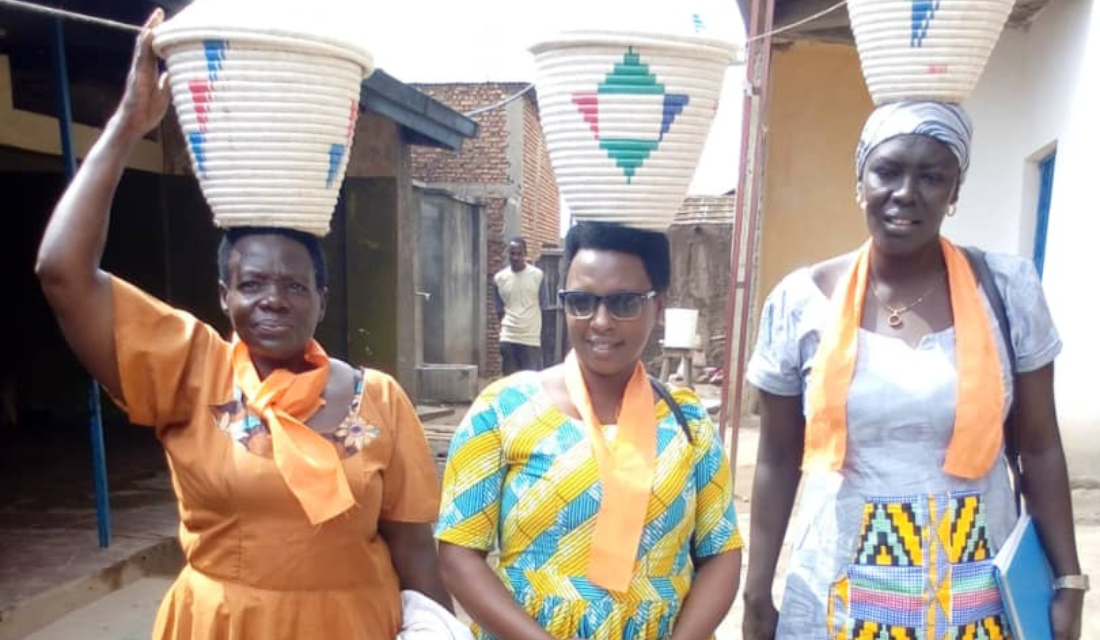Partnering to Create More Equal Relationships in Burundi

From behind a curtain, Chantal spoke to volunteers from the Service Anglican pour le Développement Communautaire (SADC) safe house. The volunteers arrived at her home with baskets filled with food and hygiene items as a sign of good faith, though their visit was not casual in nature. Instead, it served as an offering of peace and an invitation for transformation.
In rural Burundi, through SADC, a local NGO that originally operated as part of the Province of the Anglican Church of Burundi (PEAB), Episcopal Relief & Development supports a community safe house for survivors of gender-based violence. This safe house is a center for respite, training and resources. The agency provides immediate medical and psychosocial support to survivors as well as referrals to judicial and further services. Survivors are provided clothing, sheets, hygiene materials and period products. They also equip survivors of violence to be volunteers in their community and facilitate training and organize events that challenge cultural gender norms.
Local faith leaders work closely with SADC to learn about gender-based violence and how they can play a role in their communities in bringing it to an end. Faith leaders challenge their congregations to revisit their own assumptions about women and girls, using Scripture as a foundation to explore behavior change. As pillars in the community, they often get to know families closely and offer them counseling and support, including referring them to SADC volunteers and programming.
The active role of faith leaders in Chantal’s community led to her household being identified as one in need of mediation. She and her children experienced physical violence and were not allowed to leave their home. They were prevented from working or going to school.
The volunteers who visited Chantal’s home were also survivors of violence and had received counseling and other support from the SADC safe house. They sat down with her husband and guided him through a self-discovery process about his behaviors and how they were affecting his family and community. They also informed him about the safe house counseling services and peer support groups. Through the services offered by the safe house, men are trained on positive masculinity and non-violent communication and conflict resolution.
Episcopal Relief & Development works to pinpoint social norms that create unsafe environments for women and children and to alleviate some of the factors that can lead to anger and resentment like poverty and hunger. The program with SADC connects families with savings and livelihood development opportunities like reforestation which also helps protect the community from the effects of a changing climate.
For Chantal who once was only able to greet her visitors from behind a curtain, the program has been beneficial. Her children are now enrolled in school and her husband has been participating in the programming offered through the safe house.
View Episcopal Relief & Development’s 2022 Annual Report for more stories of lasting change.


